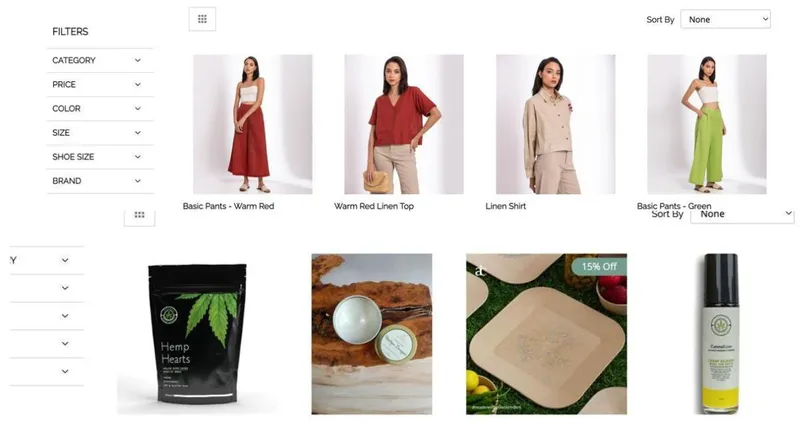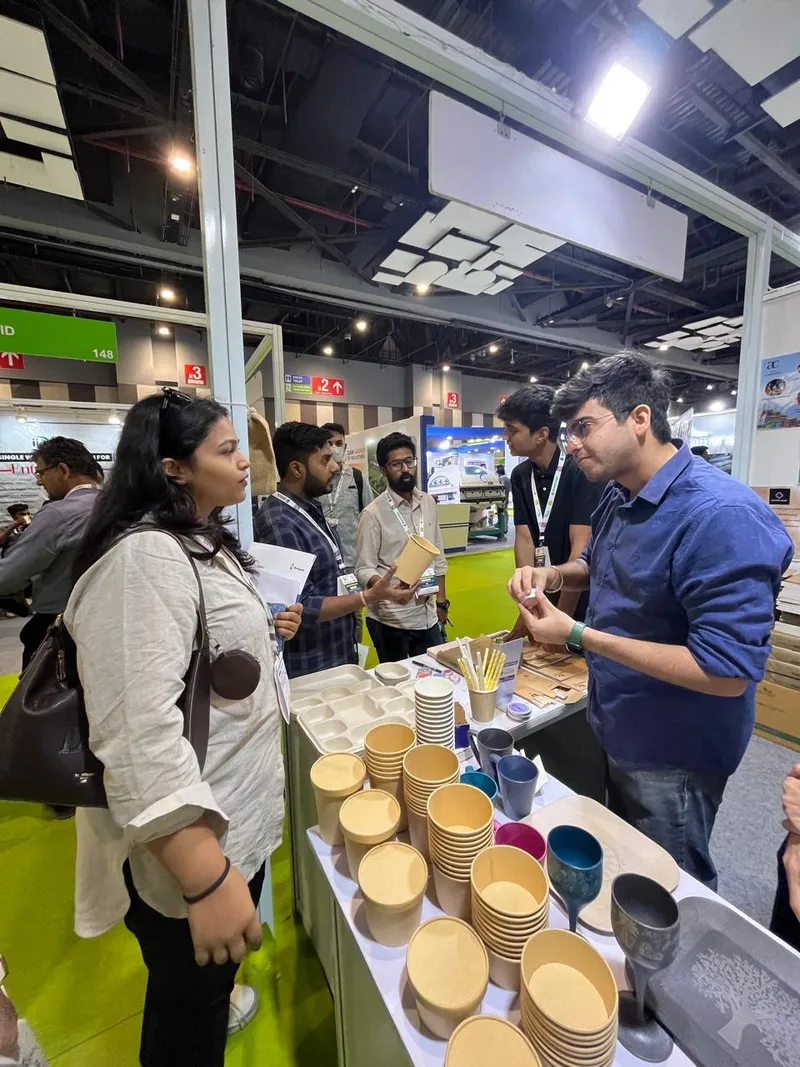This ecommerce marketplace is helping consumers and businesses make eco-friendly choices
Started in 2022, Impacto is an ecommerce marketplace that aggregates sustainable products across categories like fashion, beauty, and wellness. It is currently selling its products to multinational companies, hotels, and large institutions.
While attending the Hult Prize Global Accelerator in London in 2021, Shivang Singh met numerous startups working in the impact segment. However, he noticed a common challenge among them—gaining traction.
According to him, this was because of market disadvantages such as low cost of commercially scaled products and a lack of consolidation of sustainable and ethically made products.
This prompted Singh to ponder more on the issue and craft a solution.
“In mainstream commerce, people often buy products based on price, even though these products typically use synthetic materials,” Singh tells SocialStory.
In 2022, Singh launched Impacto to build sustainable solutions for consumers, businesses, and governments.
The Gurugram-based startup is a marketplace for sustainable products across categories like fashion, beauty, and wellness products. Impacto serves both individual customers and the B2B segment, and supplies to multinational companies, hotels, and large institutions.
“Impacto is not just a marketplace but a conscious movement towards eco-friendly choices. In short, we are the green Amazon or green Alibaba,” he says.
A conscious choice
Singh’s tryst with climate consciousness and sustainability started from his childhood. He recalls that his parents taught him not to litter, and if someone littered in front of them, they would pick it up and dispose of it. Additionally, he frequently participated in volunteering activities. These small learnings made sustainability a big part of his life, he adds.

Shivang Singh
After completing his schooling in 2018, Singh studied International Business & Global Management from the University of Hong Kong.
During COVID-19, he realised that while the food delivery industry was growing, businesses used single-use plastic bags and cutlery. This prompted him to start his own edible cutlery business called Edilery in Hong Kong.
The venture was funded and incubated by the Hong Kong Science and Technology Park, and also went on to be the runner-up pitch at the Hult Prize Global Accelerator in London in 2021.
In the course of time, Singh observed a lack of awareness about sustainable brands and the prevalence of low-priced, non-sustainable alternatives that people often chose.
This realisation eventually led him to start Impacto to provide a platform for eco-friendly brands.
“With this startup, I wanted to rekindle the love for the environment. This is crucial to fight against climate change, which is an emergency now,” he says.
He mentions that after returning to India, he started building Impacto.
“Through my previous venture and these experiences, I gained a deep understanding of how business works and the mindset needed for entrepreneurship,” he adds.
Singh further explains that being a single founder and first-generation entrepreneur in his family has been challenging.
“I had no network and no knowledge of running a business. Additionally, being the sole founder of a startup, aiming for a 360-degree sustainability solution is tough. It has been a steep learning curve,” he adds.

The startup has around 100 brands on board
Singh emphasises that the high cost of sustainable products is another challenge.
In the same vein, he throws light on ‘green premium’, a term coined by Bill Gates. Green premium is the cost between a product that emits carbon and an alternative that doesn’t.
Singh emphasises that green premium exists because sustainable products are not being produced at scale and hence are sold at a higher price point than non-sustainable alternatives.
“Green trade needs to increase so that these brands can achieve economies of scale,” he adds.
Creating a green marketplace
Singh explains that Impacto was started as a marketplace for customers. However, they soon branched out into the B2B segment.
He says that the B2B segment opens up a large market where they can receive bulk orders, allowing them to make a larger impact. Additionally, the recurring nature of demand in this segment offers more stability to the business.
“Moreover, being a bootstrapped startup, we could not go all out on advertising to facilitate customer conversions,” he adds.
Singh claims that currently the startup is working with 100 brands and is actively focused on expanding its B2B business. It provides products like recycled notebooks, bamboo-based toiletries such as tissues, kitchen rolls and wipes, compostable and disposable tableware, eco-friendly gift hampers and more to schools, restaurants, hotels, and corporates, and has also supplied to cloud kitchens. Singh further says that Impacto is working with brands like Zomato and The Heritage Resort, Manesar.

The startup also caters to B2B segment.
The brand earns revenue by charging a 30% commission on sales in the B2C space. For B2B, Impacto purchases the required number of products from the brand, and then sells it at a higher price.
The startup is bootstrapped as of now, and Singh notes that it will soon break even.
“Since I was on scholarship all through university and was earning from internships, which I was investing and trading, so by the time I started up, I had enough savings,” he adds.
Some of its competitors include Amala Earth, , , and .
The startup is now moving towards the business to government (B2G) sector where it is working with the Delhi government.
Singh says that one of the projects with the government is the City of Forests Programme, which aims to plant one million trees across government schools in Delhi-NCR using the Miyawaki method. In this project, the startup is helping with securing financing and executing the project.
He further elucidates that before onboarding a brand to their marketplace, they send a questionnaire where brands are asked about the materials they use, their manufacturing processes, and their waste generation. This helps the startup assess their sustainability. Additionally, they are required to share their certifications and lab test reports for verification.
“We want to ensure the brands we are working with are genuinely sustainable. The checks are done by my core team and me, but we wish to make this process more robust by getting technical experts on board in the future,” he adds.
Edited by Megha Reddy







